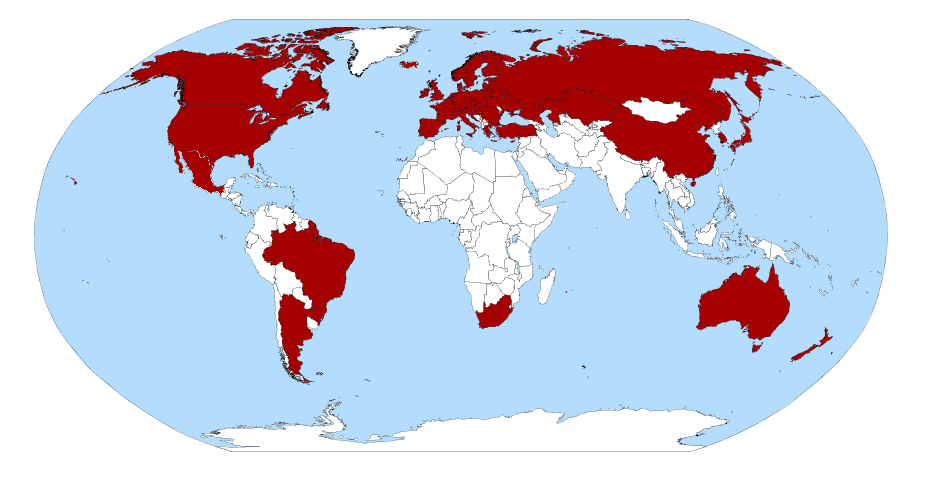Nuclear Suppliers Group
- The Nuclear Suppliers Group (NSG) is a group of nuclear supplier countries that seeks to contribute to the non-proliferation of nuclear weapons through the implementation of two sets of Guidelines for nuclear exports and nuclear-related exports.
- The NSG was founded in response to the Indian nuclear test in May 1974 and first met in November 1975. The test demonstrated that certain non-weapons specific nuclear technology could be readily turned to weapons development. Nations already signatories of the Nuclear Non-Proliferation Treaty (NPT) saw the need to further limit the export of nuclear equipment, materials or technology. Another benefit was that non-NPT and non-Zangger Committee nations, then specifically France, could be brought in.
- The zangger Committee and the Nuclear Suppliers Group maintain lists of items that may contribute to nuclear proliferation - Trigger list; The nuclear non-proliferation treaty forbids its members to export such items to non-treaty members. these items are said to trigger the countries' responsibilities under the NPT.
- A series of meetings in London from 1975 to 1978 resulted in agreements on the guidelines for export, essentially the Zangger "Trigger List" by the International Atomic Energy Agency. Listed items could only be exported to non-nuclear states if certain International Atomic Energy Agency safeguards were agreed to or if exceptional circumstances relating to safety existed.
- The name of the "London Club" was due to the series of meetings in London. It has also been referred to as the London Group, or the London Suppliers Group.
- The NSG Guidelines also contain the so-called “Non-Proliferation Principle,” adopted in 1994, whereby a supplier, notwithstanding other provisions in the NSG Guidelines, authorises a transfer only when satisfied that the transfer would not contribute to the proliferation of nuclear weapons. The Non-Proliferation Principle seeks to cover the rare but important cases where adherence to the NPT or to a Nuclear Weapon Free Zone Treaty may not by itself be a guarantee that a State will consistently share the objectives of the Treaty or that it will remain in compliance with its Treaty obligations.
- The NSG Guidelines are consistent with, and complement, the various international, legally binding instruments in the field of nuclear non-proliferation. These include the Treaty on the Non-Proliferation of Nuclear Weapons (NPT), the Treaty for the Prohibition of Nuclear Weapons in Latin America (Treaty of Tlatelolco), the South Pacific Nuclear-Free-Zone Treaty (Treaty of Rarotonga), the African Nuclear-Weapon-Free Zone Treaty (Treaty of Pelindaba), the Treaty on the Southeast Asia Nuclear-Weapon-Free Zone (Treaty of Bangkok), and the Central Asian Nuclear-Weapon-Free Zone Treaty (Treaty of Semipalatinsk).
- The NSG Guidelines are implemented by each Participating Government (PG) in accordance with its national laws and practices.
- Decisions on export applications are taken at the national level in accordance with national export licensing requirements.
- 2015/2016 NSG Chair Country: Argentina
- The European Commission and the Chair of the Zangger Committee participate as observers.

No comments :
Post a Comment